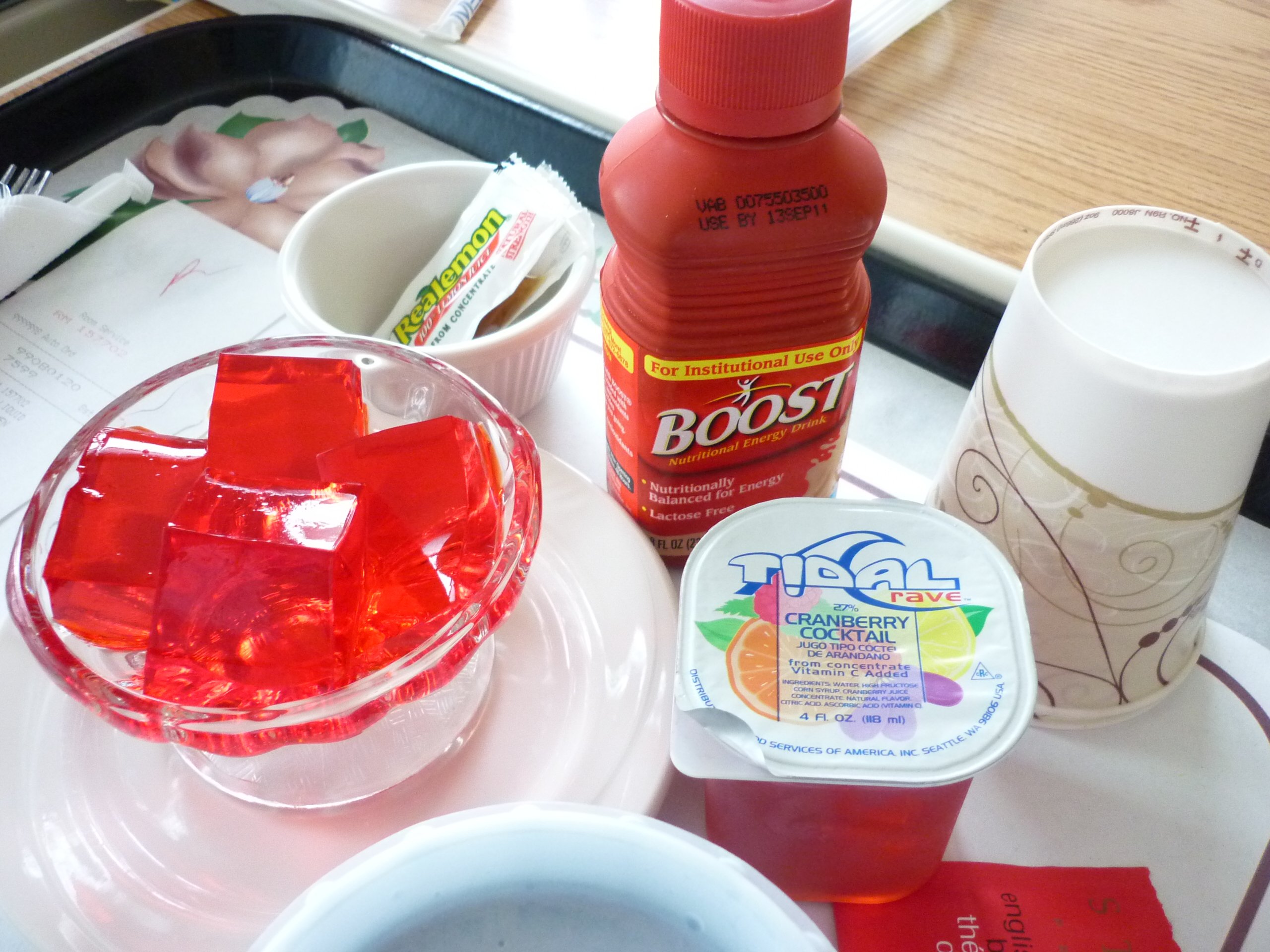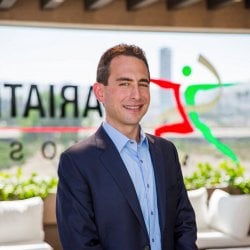Liquid Diets: Defined and Explained

Clear Liquid
On a clear liquid diet, you only drink only clear liquids, that is, liquids you can mostly see through. Examples include water and flavored water (such as Crystal Light), sports and electrolyte drinks, diluted apple, grape, and cranberry juice, decaf tea, sugar-free juice drinks such as Kool Aid, broth and bouillon, and sugar-free popsicles.
A clear liquid diet does NOT include protein shakes. It also excludes orange juice with pulp and carbonated drinks.
Your surgery may ask you to go on a liquid diet a day or two before surgery. After surgery, you’ll be on a clear liquid diet for 1 to 2 days. Your surgeon may have you stay on it longer. When you get the clearance, you can begin your full liquid diet.
Full Liquid
The full liquid diet is more nutritious than the clear liquid diet. It can keep you nourished for weeks or months at a time. You may be on a full liquid pre-op diet for a few days or even weeks before surgery.
A full liquid diet includes all the liquids on a clear liquid diet, plus milk. Your surgeon may allow watery cream of wheat and thin yogurt.
A full liquid diet DOES include protein shakes. That’s key because it’s where you get most of your nutrients from.
After surgery, you’ll stay on a full liquid diet until about 1 to 2 or more weeks post-op, depending on what your surgeon and nutritionist recommend. Then you’ll move to a pureed foods diet.
The sooner you move from clear to full liquids, the sooner you can give your body important nutrients like protein. Still, don’t rush it! Giving your pouch, sleeve, or stomach more than it can handle is a sure way to develop complications, whether you’re shortly post-op or you just got a band fill.
If you have the lap-band, you may be on a full liquid diet after a fill or adjustment. This may last a day or so.
What’s the Point?
Why go on a liquid diet? It’s a way of keeping you hydrated – and nourished, on the full liquid diet – without eating solid foods.
- Pre-op: It shrinks your liver, so the surgeon can see better and your surgery is safer. It also makes surgery safer because it helps you lose weight. Finally, it
- Post-op: It lets you stay hydrated without harming your surgery scars or getting in the way of healing. Your body uses some of the protein on a full liquid diet to help heal your wounds.
- After a fill: It lets you stay hydrated and get some nutrients even while you may be a little sore from the fill.
What About Nutrients?
Ask your surgeon or nutritionist what your daily goals are on the diet. You’ll probably be asked to have a minimum of 64 ounces of fluids, PLUS (if you’re on the full liquid diet) at least 65 grams of protein per day.
You might be able to meet your nutrient needs if your protein shakes are fortified, but you might also be asked to take vitamin supplements. Liquid vitamins can help you get your vitamins without swallowing pills. Nearly all bariatric patients should take a multivitamin both before and after surgery.
You might also need liquid iron, sublingual or liquid vitamin B12, and liquid calcium with vitamin D. If you’re among those weight loss surgery patients who are worried about losing hair after surgery, you might also want to consider a liquid biotin supplement.
Ask Your Surgeon or Nutritionist!
If you’ve done your research on liquid diets, you’ve probably noticed something: they’re all different! Ask five different experts or visit five different sites, and you’ll probably get five different sets of guidelines on liquid diets. They can vary in when you follow them and what you’re allowed to have. Why so different?
For one thing, there’s a certain amount of risk and reward to weigh. Everyone agrees, for example, that you shouldn’t have celery and sunflower seeds the day after weight loss surgery. The risk of getting it caught in your band or ripping your surgery stitches apart are too great.
But what about something less obvious, like decaf coffee? Some surgeons forbid it, claiming the acidity is too much of a risk. It can increase risk of heartburn irritate the stomach, which can slow healing. Other surgeons allow it. They may reason that the benefits of allowing it (hydration!) outweigh the risks of it doing any harm. There’s no single right answer; it’s a question of your health professional’s judgment.
Another reason for different guidelines from different surgeons is that we don’t always know what’s best for YOU as an individual. Some patients respond differently, and there is no way to predict. So, some surgeons are conservative and forbid many foods, while others are more likely to allow you to experiment with a wider range of liquids.
So, that’s all there is to it. The clear liquid diet is a short-term plan that can last a couple of days, while a full liquid diet can keep you going for weeks or more. Do your best to follow your surgeon or nutritionist’s guidelines, and you’ll be doing yourself a big favor!


jane13 2,256
Posted
Alex, Thanks for going into more detail about the liquid diet.< /p>
You are absolutely right that it depends on the individual, but some things are obvious to most of us, like the seeds & celery right after surgery.
Share this comment
Link to comment
Share on other sites